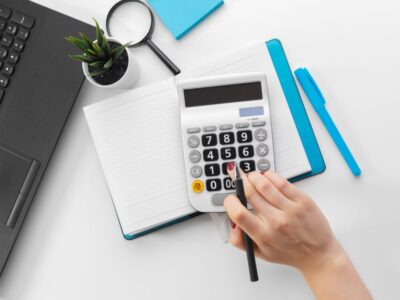Late one evening, you check your credit score online and you noticed it’s lower than it was the last time you checked. You have a sinking feeling in the pit of your stomach as you realize the implications of a low credit score. A lower credit score can mean higher interest rates on loans, and insurance premiums, and even affect your ability to get a job.
Does having bad credit scores affect you as a person? Yes, It can be hard. Don’t worry let’s talk about the side effects and what we can do to improve them.
What Is A Bad Credit Score?
In the United States, a credit score is a number that represents the creditworthiness of an individual. The higher the credit score, the more likely the individual is to repay their debts. The lower the credit score, the more likely the individual is to default on their debt obligations.
What is considered a bad credit score?. Scores range from 300 to 850, and the average credit score in the United States is 680. A credit score of 700 or above is considered good, while a credit score of 630 or below is considered bad. A bad credit score can have negative side effects, including higher interest rates on loans, difficulty securing credit, and lower credit limits.
The Unfairness of Bad Credit Scores
Bad credit scores issues can be very unfair. The challenges of bad credit scores for people include getting loans, credit cards, and even jobs. It can be hard to build up a good credit score, but it only takes a few missed payments to have a bad credit score. This can be very frustrating for people who are trying to improve their financial situation.
The Real Side Effects Of Bad Credit Scores
Bad credit scores can have a ripple effect on your life, making it more difficult to get a loan approved, rent an apartment, or even buy insurance. And if you’re already struggling with debt, a low credit score can make it even harder to get back on track.
The good news is that there are things you can do to improve your credit score. The first step is to understand what’s causing your score to be low in the first place. If you have a history of late payments, for example, you’ll need to start making your payments on time. You can also get help from a credit counseling company or credit optimization service to help you fix your credit score.
How To Fix Bad Credit Score
If you’re looking to improve your credit score, there are a few things you can do. First, make sure you’re paying your bills on time. This is one of the biggest factors in your credit score. Next, keep your balances low. This shows lenders that you’re not relying too heavily on credit. Finally, don’t open too many new accounts at once. This can be a red flag to lenders. If you follow these tips, you should see your credit score improve over time.
Steps To Take If Your Credit Score Is Suffering
If you have a poor credit score, improve your credit score and re-establish your credit history. You can get a copy of your credit report from the three major credit bureaus and look for errors that may be affecting your score. You can also ask the credit bureaus to remove any incorrect or outdated information.
Bad credit scores can have negative side effects, including making it difficult to get loans, credit cards, and even jobs. If you have a bad credit score, it’s important to take steps to improve it. You can do this by paying your bills on time, maintaining a good credit history, and paying down your debt.
Do you now have a better understanding of what happens to you when you have bad credit scores? Now that you’ve explored how having bad credit affects your life, take a moment to browse through some of our other blog posts for more valuable insights and advice.












Comments